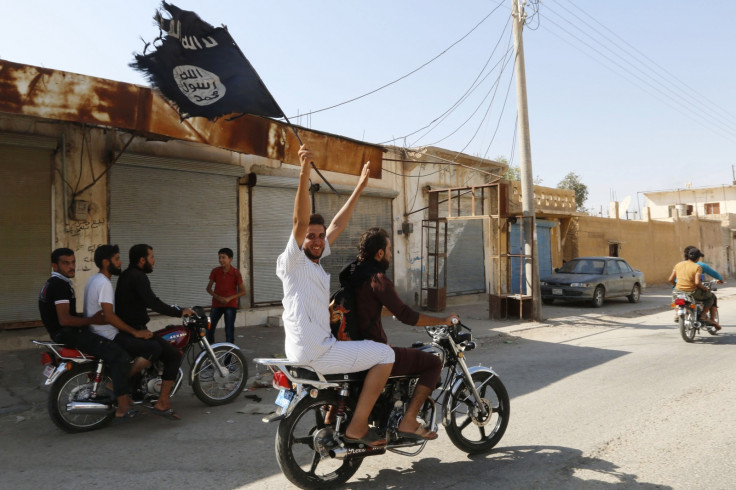Boys of Pleasure: Sexual abuse of children betrays Isis hypocrisy

On Boxing Day last month, the New York Times published a story about an Islamic State (Isis) defector: a 14-year-old Syrian boy named Usaid Barho. According to Tim Arango, the journalist who wrote the story, Barho had been recruited by Isis via a mosque in his hometown, Manbij, near Aleppo. But within months of joining he began to have serious doubts about his decision and wanted to escape, volunteering to undertake a suicide attack so that he could sabotage the mission and surrender himself to security forces.
The plan worked and the target of Barho's mission – a Shiite mosque in Baghdad – wasn't incinerated and bespattered with human body parts. It was saved, as were the people praying inside it.
Barho's story, as Arango makes clear, is part of a bigger story about the systematic exploitation and abuse of children in the conflicts in Syria and Iraq.
Arango observes that young boys have been recruited into Isis and sent to Iraq to fight or have been lined up, as Barho was, to become suicide bombers; that thousands have been killed or injured in bombings, crossfire and even executions; and that many young girls from minority groups have been kidnapped and sold into sexual slavery.
Referring to a United Nations report published in November, he also notes that in Raqqa, Isis' stronghold in Syria, children have been made to watch screenings of execution videos and forced to participate in public stonings.
This is profoundly shocking, but the brutalisation and abuse of children at the hands of Isis isn't exactly news. We have known about it for some time, especially the sexual victimisation of Yazidi, Christian, Turkomen and Shabak women, girls and boys.
In a joint statement released on August 13 2014 two senior United Nations officials spoke out against Isis' "barbaric acts" of sexual violence and "savage rapes" of Iraqi minorities. "We are gravely concerned by continued reports of acts of violence, including sexual violence against women and teenage girls and boys belonging to Iraqi minorities," Zainab Hawa Bangura and Nickolay Mladenov said.
One detail in Arango's story, however, stands out: it is the reference to homosexual sex in an Isis training camp. "He [Barho] said he saw men having sex with other men behind the tents in the desert night."
This of course is not to suggest that jihadi gay sex is more troubling than the brutalisation and sexual enslavement of children in IS-controlled territory. But it does raise an important question about the rank hypocrisy of Isis and their fanatical preoccupation with the moral rectitude of everyone else but themselves, as does the recent alleged discovery of a large cocaine stash at the house of an Isis leader in Kobane.
The testimony of defectors, as sociologists have long pointed out, cannot be taken at face value and must be handled with caution. "The disaffected and the apostate", Bryan Wilson wrote, are "informants...in need of self-justification", seeking to "reconstruct" their past and "explain how, by manipulation, trickery, coercion, or deceit" they were recruited into an organization that they now forswear and condemn.
So it is difficult to know with any degree of certainty whether Barho is telling the truth. But the link between jihadism and homosexual sex is worth probing.

We know that jihadis of all stripes violently disapprove of homosexuality. The Taliban, for example, was notorious for its persecution of gays. And, if recent reports are to be credited, Isis, in addition to its war against Shiites, has been waging a violent campaign against gay people.
But we also have good reason to believe that the Taliban, despite its avowed opposition to homosexuality, was sexually molesting young boys.
"I have personally done investigative reporting when they were allegedly taking away young boys from schools for sexual pleasure," Aqeel Yusufzai, a Peshawar-based journalist, told Central Asia Online in August 2013. "I've confirmed reports of militants – both in Pakistan and Afghanistan – exploiting young boys."
A senior Pakistani military officer, Brig. Said Nazeer, is quoted in the same report as confirming the practice of bacha bazi, or "boys for pleasure". "I have served as a commander of forces in border areas and knew well how young boys are exploited and taken away," he said. "Boys – good-looking ones – were often taken as war booty by commanders during the Afghan jihad [the 1979-1989 anti-Soviet war]. The situation has not changed."
The sexual abuse of boys by the Taliban has also been corroborated by Afghanistan's National Directorate of Security.
According to a report issued by the NDS in September 2013, the Taliban, in addition to grooming young boys for terrorist attacks, has been keeping them as sex slaves at camps throughout regional Afghanistan. The report cites testimony from one 17-year-old who confessed that he was sexually molested by a Taliban commander in the Maidan Wardak province of Afghanistan. The teenager also testified that he was used in several insurgent attacks.

Whether bacha bazi is also prevalent in Isis training camps is impossible to know, given the stigma attached to homosexuality across the Muslim world and the lack of defector testimony.
In September last year, Walid Shoebat and Theodore Shoebat reported first-hand testimony accusing an Isis leader, apparently named "prince" Abu Ala', of sodomising eleven recruits under his command.
Shoebat and Shoebat also made reference to a Kurdish television documentary in which it is asserted, according to Shoebat and Shoebat, that "IS has been raping men in a ceremony it describes as 'marriage'". The documentary, which aired in August 2014 on the Kurdish channel STERK TV, reportedly draws on the testimony of more than 20 captured Isis fighters who admitted they had been raped as part of an initiation rite into the group and that this was filmed to ensure they wouldn't defect.
This documentary appeared at around the same time as reports relaying an allegation by a prominent Egyptian cleric that the Muslim Brotherhood has sanctioned "anal jihad" for Islamic militants who are fighting for long periods away from their wives.
Like the detail from the New York Times article, the veracity of these reports is hard to prove. And because of the obvious propagandistic purposes to which they can be co-opted, it may be that they are just too good to be true.
What cannot be disputed is the moral nullity of Isis, nor the hypocrisy of "defending" the honour of Islam all the while murdering and enslaving countless innocents, including large numbers of Muslims and children.
Simon Cottee is a Senior Lecturer in Criminology at Kent University, UK. His book The Apostates: When Muslims Leave Islam is out in February, published by Hurst & Co.
© Copyright IBTimes 2024. All rights reserved.






